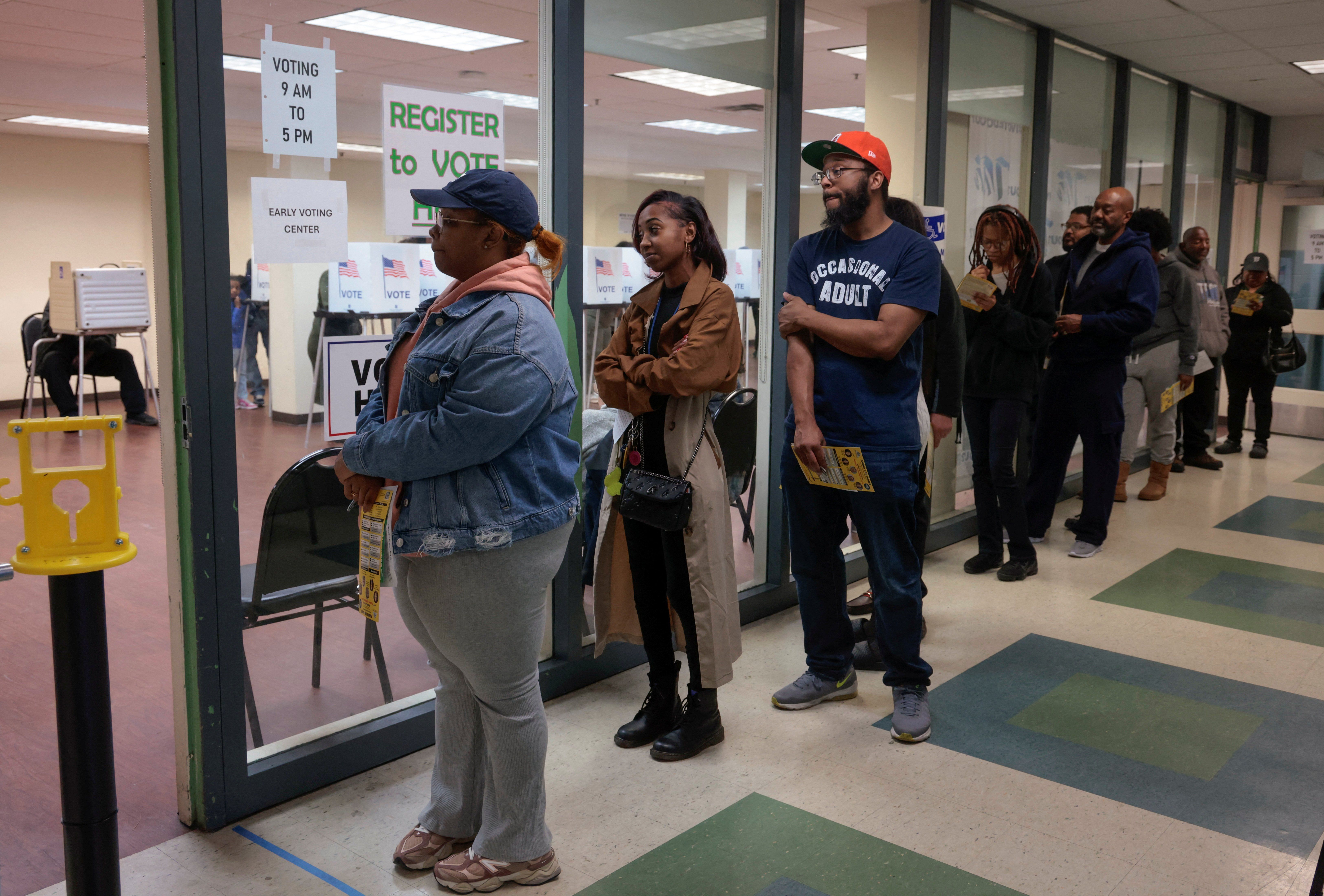Voters wait in line to cast their votes during early voting in the U.S. presidential election at a polling station in Detroit, Michigan, U.S. November 3, 2024. REUTERS/Rebecca Cook
The Supreme Court may soon consider a Republican-led legal challenge that seeks to prevent states from counting mail-in ballots received after Election Day, Democracy Docket reported Wednesday.
A directive issued by President Donald Trump in March targets this voting method, calling for stricter controls. In response, Republican-majority states have begun enacting legislation to prohibit the acceptance of such late-arriving ballots.
Democracy Docket, a digital platform that supports voting rights, described this move as "a multi-pronged assault."
READ MORE: 'System is rigged': MAGA suffers full-blown meltdown following Trump foe’s landslide victory
"In sixteen states and Washington D.C., a grace period of varying lengths — Washington state’s is the longest at 21 days — allows mail ballots that arrive after Election Day to be counted as long as they were postmarked by Election Day, in part to ensure that voters aren’t disenfranchised by mail delays beyond their control. Several states created or lengthened their grace periods in response to the dramatic surge in mail voting spurred by the Covid crisis of 2020," the report notes.
Experts argue that eliminating grace periods for mail-in ballots risks disqualifying vast numbers of valid votes, potentially affecting hundreds of thousands of voters. In certain states, voting rights groups warn that such changes could effectively shut down access to mail voting altogether.
In recent years, the Republican National Committee has launched numerous legal efforts aimed at eliminating grace periods for mail-in ballots across the country. However, courts rejected related lawsuits in states like Illinois, Nevada, North Dakota, and Mississippi.
The report notes that Massachusetts provides a clear example of the impact a grace period can have. The state allows a grace period only during biennial state elections, excluding primaries.
READ MORE: 'Borderline illiterate': Trump mocked as he 'runs his mouth' instead of running the country
In the March 2024 presidential primary, 2.7% of submitted ballots were discarded, including 10,042 that were "due to late arrival," based on data from the Secretary of State’s office. By contrast, during the November general election — when ballots were accepted up to three days after Election Day — the rejection rate dropped to 1.1%, with 2,587 ballots arriving too late to be counted.
As legal battles over grace period policies intensify, many states are gearing up to defend them in court. A hearing on a request for a preliminary injunction is scheduled for June 6, per the report.
From Your Site Articles
- North Carolina GOP is 'one step closer to stealing an election': critics ›
- 'Mixed message': GOP pours millions into early voting push Trump dismisses as 'stupid stuff' ›
- Red state voters deliver 'full-throated rejection' of GOP governor’s 4 constitutional amendments ›
- Blatant GOP Voter Suppression: Ohio Republicans Try to Punish Colleges that Enable Students to Vote ›
- Senate Republicans vote to let banks gouge customers with higher overdraft fees ›
- 'Bloodless coup': NC Supreme Court partially upholds GOP vote-tossing effort ›
- Nevada fears state could get stiffed by Trump after fronting funds - Alternet.org ›
Related Articles Around the Web
